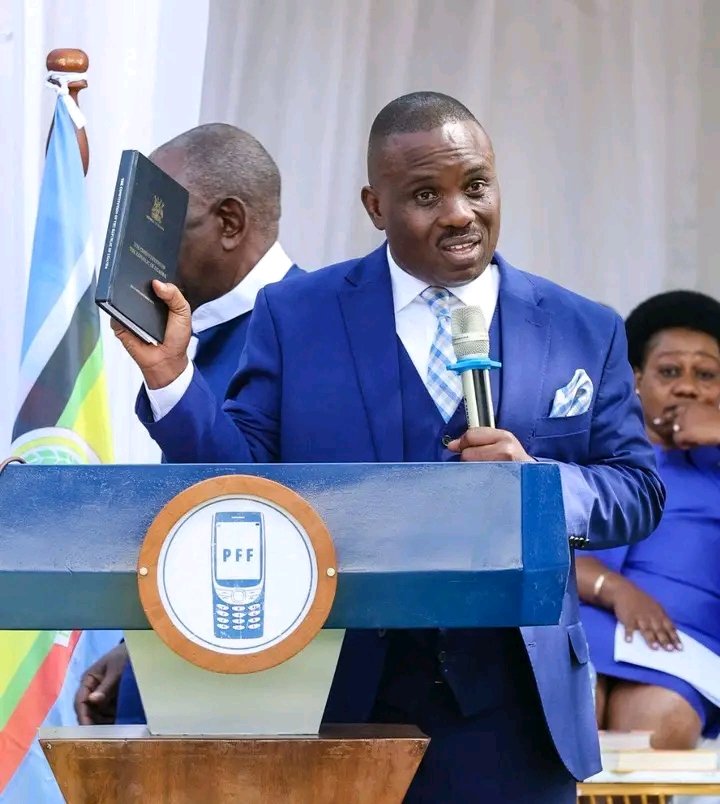People’s Front for Freedom: What does Erias Lukwago and the new political party offer to Uganda head of 2026 elections?
For years, Lukwago has been a consistent voice for constitutionalism, rule of law, and urban governance, particularly in Kampala.

The unveiling of the People’s Front for Freedom (PFF) and the appointment of Kampala Lord Mayor Erias Lukwago as its National Executive Chairperson has injected a fresh wave of speculation and debate into Uganda’s already dynamic, yet often fragmented, political landscape. Lukwago, a seasoned opposition figure known for his legal prowess, unwavering critical stance against the ruling NRM, and his resilience in the face of political adversity, brings immediate gravitas to the nascent party. But as Ugandans ponder this new political outfit, the crucial question remains: what tangible difference does the PFF promise to offer beyond the familiar faces and rhetoric of opposition politics?
The Man at the Helm: Erias Lukwago’s Enduring Appeal
Lukwago’s move to chair the PFF, following his conspicuous distance from the Forum for Democratic Change (FDC) – a party he once served as Vice President for Buganda – signals a significant shift. For years, Lukwago has been a consistent voice for constitutionalism, rule of law, and urban governance, particularly in Kampala. His battles with the central government over the administration of the capital have earned him both admiration and a reputation for being an uncompromising advocate for democratic principles and accountability.
His appointment is strategically potent. Lukwago commands a loyal following, particularly within Kampala, and possesses a significant public profile. He is seen by many as a principled politician who has withstood immense pressure, including impeachments and harassment. For the PFF, Lukwago offers instant recognition, a legal mind, and a track record of challenging the status quo – assets crucial for any new political entity hoping to gain traction in a tightly controlled political environment.
The Promises of “Freedom”: What We Know So Far
While the PFF’s detailed manifesto is yet to be fully articulated, its name, “People’s Front for Freedom,” strongly suggests a foundational commitment to democratic freedoms, human rights, and political liberation. Given Lukwago’s background, one can anticipate the PFF’s platform to heavily emphasize:
Constitutionalism and Rule of Law: Lukwago’s legal background and consistent advocacy mean the PFF is likely to champion the restoration of constitutionalism, independence of institutions, and adherence to the rule of law – a common but perpetually relevant demand in Uganda.
Good Governance and Accountability: Expect a strong focus on fighting corruption, improving transparency in public service, and ensuring accountability from government officials. Lukwago’s experience in local governance could also translate into proposals for more effective and less politicized urban and local administration.
Economic Justice and Empowerment: While specific policies are awaited, new parties often tap into widespread economic grievances. The PFF will likely promise solutions for high unemployment, poverty, and equitable distribution of resources, aiming to resonate with the common Ugandan struggling with the cost of living.
Political Space and Democratic Transitions: The “freedom” in its name points to a desire for opening up the political space, ensuring free and fair elections, and advocating for a peaceful transfer of power – a core aspiration for many Ugandans fatigued by the incumbent’s long stay.
People-Centric Development: The term “People’s Front” suggests a commitment to grassroots engagement and ensuring that development policies directly benefit ordinary citizens, rather than serving narrow elite interests.
The Uphill Battle: Challenges for the PFF
Despite Lukwago’s stature, the PFF faces immense hurdles, typical for any new political formation in Uganda:
Distinguishing Itself: The Ugandan opposition landscape is crowded, featuring established parties like the FDC and the increasingly dominant National Unity Platform (NUP). The PFF must clearly articulate how it is genuinely different, not just another splinter group or a rebranding of old ideas. How will it offer a unique message or strategy beyond the general call for change?
Funding and Resources: Launching and sustaining a national political party requires significant financial resources for mobilization, communication, and logistical operations. New parties often struggle to compete with the NRM’s state resources and established networks.
National Outreach vs. Kampala-Centric Image: While Lukwago is popular in Kampala, the PFF needs to demonstrate genuine national appeal and establish structures across the country to be a credible contender. Overcoming the perception of being a “Kampala thing” will be crucial.
Voter Fatigue and Skepticism: Many Ugandans feel disillusioned by the perceived fragmentation and infighting within the opposition. There’s a risk of the PFF being seen as “another new party” without offering a fundamentally new approach, leading to voter apathy.
State Repression: Opposition parties in Uganda often face hurdles including restrictions on public gatherings, arrests of members, and media censorship. The PFF will need robust strategies to navigate this challenging environment.
Internal Cohesion: The term “Front” suggests a broad coalition, which can be both a strength and a weakness. Maintaining unity among diverse interests and personalities will be vital for long-term survival.
What Ugandans Truly Seek
Ultimately, what Ugandans are looking for is not just another political party, but genuine, tangible solutions to their pressing challenges: high unemployment, rising living costs, pervasive corruption, inadequate healthcare, and a yearning for a more equitable and democratic society. They seek a political force that can inspire hope, offer a credible pathway to change, and demonstrably put their interests first.
The PFF, under Erias Lukwago, has the opportunity to tap into this deep-seated desire for change. Its success will not hinge merely on Lukwago’s personal appeal, but on its ability to articulate a clear, actionable vision, mobilize effectively across all regions, build trust through consistent messaging, and demonstrate a commitment to unity within the broader opposition movement.
The PFF’s emergence adds another layer to Uganda’s complex political narrative. Whether it blossoms into a significant force for change or becomes another footnote in the country’s multiparty experiment will depend on its ability to transcend the challenges and truly offer Ugandans something genuinely new and impactful. The journey has just begun, and all eyes will be watching.







